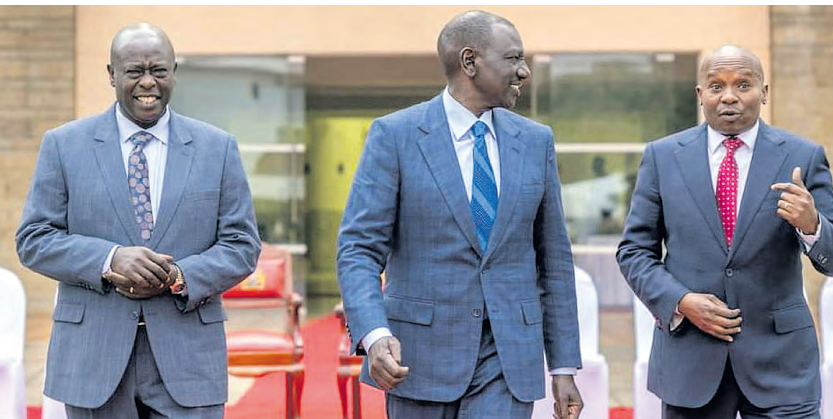

Game theory, a fascinating branch of mathematics and economics, provides a powerful lens for analysing strategic interactions where outcomes hinge on the decisions of multiple actors.
In the realm of politics, where strategy purveys the landscape, game theory illumines the motivations, choices and consequences that shape governance and electoral processes.
At its core, game theory scrutinises decision-making scenarios involving interdependent players. Each player’s outcome depends not only on their choices but also on the actions of others.
The framework is built on several fundamental components: players, strategies, payoff s and equilibrium.
Players represent politicians or coalitions making decisions, strategies are the actions available to them, payoffs denote the outcomes of those strategies and equilibrium represents a state where no politician or political outfit benefits by unilaterally altering their strategy.
Three pivotal principles define game theory. First, rationality assumes players aim to maximise their utility.
Second, strategic interaction acknowledges that decisions are infl uenced by the anticipated responses of others.
Third, equilibrium analysis identifi es stable states where players’ strategies are mutually optimal.
These principles resonate profoundly in political contexts, where decisions ripple through public opinion, policy outcomes and power structures.
The June 25, occupation of Parliament by Gen Z marked a seismic shift in Kenya’s political landscape.
Beyond the symbolic audacity of young Kenyans taking their frustrations to the heart of the country’s legislature, the aftermath has been defined by high-stakes realignments that reveal the fluid nature of our democracy.
These developments call for a critical examination through the lens of game theory, which provides insights into the strategic moves, payoffs and risks in Kenya’s evolving political chessboard.
Deputy President Rigathi Gachagua’s impeachment and replacement by former Internal Security minister Prof Kithure Kindiki were both dramatic.
President William Ruto’s decision to replace Gachagua signals an acknowledgment of political realities—the need to broaden his base and balance his administration.
By bringing in allies from the Western Kenya axis led by Raila Odinga and a Mount Kenya faction loyal to Uhuru Kenyatta, Ruto has shifted his coalition’s centre of gravity, ostensibly to stabilise his regime.
Gachagua has repositioned himself as the fulcrum of a counter-coalition made up of some of Azimio individuals: Kalonzo Musyoka’s Wiper Democratic Movement, Eugene Wamalwa’s Democratic Alliance Party, Jeremiah Kioni’s Jubilee faction.
Meanwhile, an independent axis coalesces around figures like Busia Senator Okiya Omtatah, whose principled stance on governance has earned him admiration across the political divide, and Maina Wanjigi, a maverick political operator.
This group’s influence is underscored by their ability to appeal to disillusioned voters seeking alternatives.
Using game theory, we can identify potential winners and losers in these realignments: President Ruto stands to gain short-term stability by neutralising potential opposition within his administration and creating a broader coalition.
Rigathi Gachagua has become an anchoring point for opposition forces, potentially rebranding himself as a formidable power broker.
However, his success hinges on whether his coalition can offer a cohesive vision rather than a reactionary stance against Ruto.
The citizenry, unfortunately, risks becoming the biggest loser if these realignments focus on power-sharing rather than addressing the pressing issues of governance, economic recovery and social equity.
The emergence of alternative voices like Omtatah, Morara Kebaso and Wanjigi points to a growing appetite for leadership grounded in principles rather than patronage.
If nurtured, this could herald a new era of issue-based politics. Kenyans must resist the temptation to sit idly by as political elites manipulate the system for their benefit.
The citizenry must demand transparency in governance, especially in the management of public resources and electoral processes.
Insist on adherence to constitutional provisions, especially concerning checks and balances. Reject divisive rhetoric and instead evaluate leaders based on their policies and track records.
More importantly, engage in civic activities, from voting to holding leaders accountable through public forums and social movements.
As such, the current political realignments present both risks and opportunities.
Whether they lead to a deeper democratic crisis or a renaissance of good governance depends largely on the vigilance of its citizens.
EDWIN WANJAWA, teaches
Globalisation
and International
Development
at Pwani
University and is
a Programmes
Associate at DTM, a
Media CSO


